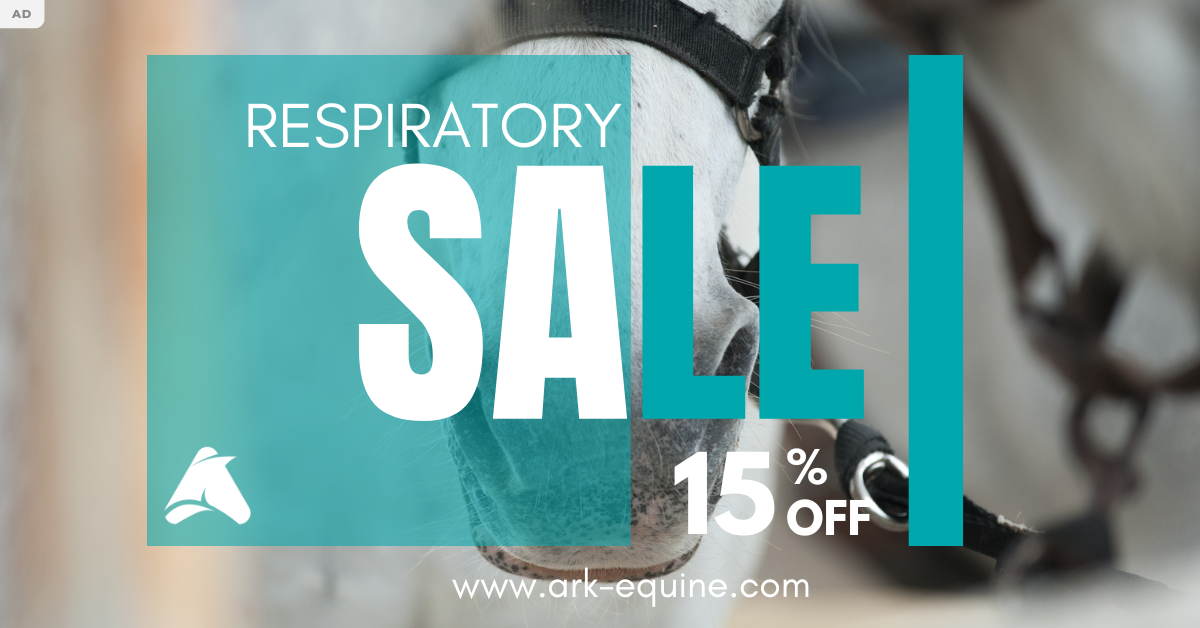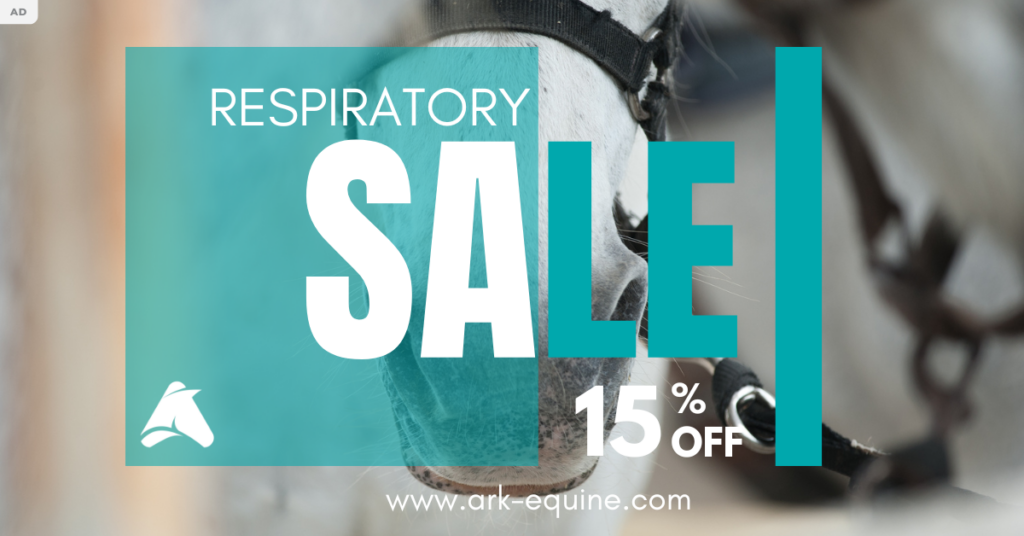
For all horse owners, having a horse with a runny nose and a cough is a familiar situation. Even without fully understanding the cause of the condition, we are aware that it seldom presents a serious risk to the horse’s life but nonetheless justifies close monitoring. In this article we will take a closer look at infectious conditions of the upper respiratory tract in the horse, how we treat them, and what the outcomes may be.
The upper respiratory tract (URT) of the horse comprises all the structures of the airways from the nostrils to the lower trachea. This includes the sinuses, pharynx (back of the throat), larynx and trachea. The lungs and main airways in the chest are not considered part of the URT. While there is obvious overlap in many of the diseases affecting both the URT and the lungs, these two parts of the respiratory system by and large have their own set of conditions.
Most infections which affect the URT are caused by viruses. There are several viruses involved and it is probably worth looking at the most common culprits.
There is a commercial vaccine available against EHV 1 and EHV 4
This is well known to most horse owners as the cause of the disease against which the horse receives an annual vaccination -‘Flu’. Influenza virus causes similar clinical signs as EHV but is much more contagious, spreading easily and causing disease in most of the horses with which it comes into contact.
Control is via herd immunity through vaccination. In the UK and Ireland, it is difficult to estimate how commonly Equine Influenza is seen, as most URT cases will not be swabbed for laboratory identification of the virus involved, though larger outbreaks are identified from time to time. Because of the infectivity of Equine Flu, outbreaks may result in a cessation of equine sporting events.
In Australia, the equine influenza virus has been eradicated from the country and strict procedures are in place to prevent its introduction. However, in 2007, 8 horses were imported from Japan, which managed to introduce and spread the virus. Within 50 days case numbers of influenza were running at 1000 per week, involving police horses, thoroughbreds, and pleasure horses.
There are some less common viruses such as Rhinovirus and Reovirus which cause mild URT infections. These have less clinical significance than EHV and Influenza.
Strep Equi – ‘Strangles’
There is only one bacterium which can cause primary URT infection, and this is Streptococcus equi, the cause of Strangles.
Strangles is a URT infection which initially may resemble the viral conditions but often develops into a more serious disease.
The bacteria Strep equi is very infectious and can spread around an infected stable yard like wildfire. Buckets, rugs, clothing of workers and vets etc can all carry the bug from one horse to another. If a yard is infected with Strangles then all movement of horses in or out must cease and strict biosecurity measures put in place.
Strangles outbreaks are common in livery yards where horse traffic in and out is high. More than 600 outbreaks are estimated to occur in the UK and Ireland every year.
Most viral URT infections will resolve with rest and good care after a couple of weeks. The horse should be allowed to recover in a dust-free stable with good ventilation. If the nasal discharge becomes green and thick, there may be an indication for antibiotics to treat a secondary bacterial infection. This is where the damaged lining of the respiratory tract becomes invaded by the usually harmless bacteria which live in the horse’s throat.
Strangles is a nasty condition. If the glands are swollen and sore, they may need poulticed to encourage them to rupture and drain. While antibiotics (Penicillin) may be used to treat the affected horse, they are not indicated for all cases, and may sometimes even prolong clinical signs and increase the risk of long-term complications.
Written by,
John Henderson BVM&S MRCVS
For support with good respiratory health view our recommended product:
RESPIMIN 800G is a feed supplement designed to support the equine respiratory tract. It is used to support horses diagnosed with respiratory conditions, and recovering from respiratory diseases such as acute, sub-acute and chronic infections (bronchitis, bronchiolitis and bronchopneumonia), viral respiratory diseases, respiratory allergies, and Recurrent Airway Obstruction (RAO). Its unique formulation encourages the release of mucous while reducing excessive coughing.
Respimin is recommended for the maintenance of a healthy respiratory tract in animals that have a history of RAO and respiratory allergies.
For more on ARKequine’s Respimin click here.
ARKequine have a special promotion running across the Month of October where you can get 15% off their Respiratory product range just click the link here: Get 15% off.



Share
Your subscription is 100% Free for our first year, No credit card details required.

A pivotal meeting at the Royal Dublin Society on April 24th highlighted a significant governance crisis within Horse Sport Ireland

In the wake of recent restructuring within Horse Sport Ireland (HSI), a multitude of concerns have arisen surrounding the new

In the wake of Horse Sport Ireland’s (HSI) recent governance changes, questions and concerns have bubbled up from the grassroots